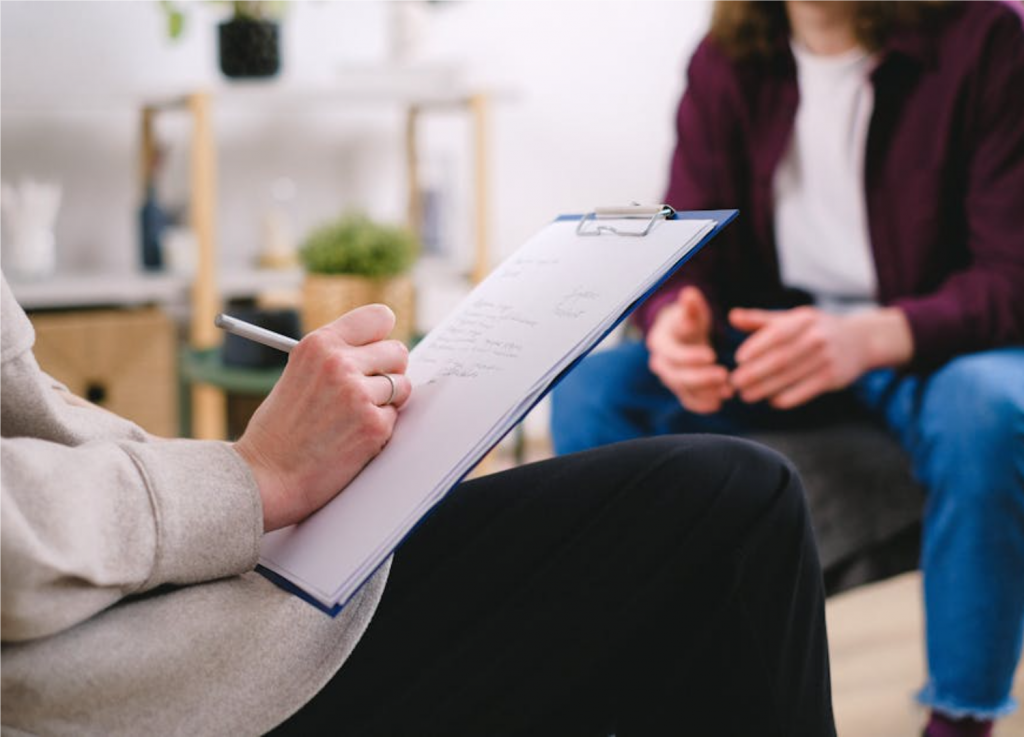
Supporting a Loved One with CPTSD
Stacie Later, LCSW
Loving someone with Complex PTSD (CPTSD) looks like loving someone whose nervous system was shaped in an unsafe world. Their reactions may not always make sense on the surface. You might see withdrawal, anger, anxiety, or emotional distance, even when nothing seems “wrong.”
CPTSD is not always easy to recognize. It’s often invisible until something activates it. Then the person you care about may suddenly seem like they are in a different state altogether detached, overwhelmed, or highly reactive. These shifts are not personal. They are protective. Understanding this can make all the difference.
What CPTSD Is
CPTSD comes from repeated, relational trauma. Usually, it begins in childhood or during important formative years within close relationships. This might include emotional neglect, betrayal, sexual abuse, abandonment, or living in an unpredictable environment where safety was not guaranteed.
The wounds run deep, because they were not just about one experience. They were about what happened over and over, and what was missing when it was needed most. These experiences often shape a person’s ability to feel safe in relationship; even in loving, stable ones.
How You Can Support Them
Support does not require you to fix anything. It means learning how to be a safe presence, even when things feel messy or confusing.
- Learn about CPTSD: Understanding what your loved one is living with helps you respond with compassion, curiosity and less confusion. The fact that you’re reading an article right now about how to support someone you love shows that you’re taking steps and you’re on your way.
- Don’t take their triggers personally: When they pull away or become overwhelmed, they are trying to manage their nervous system, not reject you.
- Model consistency: Reliable behavior builds trust. Showing up in small, predictable ways is powerful. If you say you will do something, do it. Don’t make promises you cannot keep. The injury they carry occurred in an unstable relationship, the healing comes with healthy predictability in relationships.
- Hold space without pressure: Sometimes they need connection. Other times they need space. Trust their cues. For someone with complex trauma, closeness can feel scary, even if they want it. What helps most is creating a steady, safe relationship where they don’t feel pressured or judged. “I’m here when you’re ready to talk.”
- Respect their pace: Healing doesn’t follow a straight line. One day they might seem open and connected, the next day more distant or shut down. That doesn’t mean things are getting worse. It’s just part of how the nervous system unlearns and re-learns what safety feels like. Be patient. Let them move at their own pace. Try not to take it personally when things feel confusing or inconsistent. You’re building trust with someone whose trust was broken early on, likely by people they believed they could trust.
- Encourage them to seek professional support: You can’t force someone into healing. Therapy, support groups, or trauma-informed resources can be incredibly helpful, and the choice has to be theirs. Even if they don’t act on it right away, your encouragement plants a seed. Your belief in their worth matters more than you may ever realize.
- Notice your own reactions: Being close to someone who’s healing can bring up a lot in you. You might feel helpless, confused, or even frustrated. That’s normal. Take care of your own emotional world, too. When you are grounded, it helps them feel grounded. You’re allowed to have your own boundaries and get support for yourself; it doesn’t make you less caring. In fact, it makes you more effective in your support
- Let this relationship shape you too: Loving someone with Complex Trauma can open up things in your own heart, too. You might find yourself becoming more patient, more compassionate, more aware of your own emotions. It may even open up and expose parts of yourself that need to heal, too. That’s part of the gift of relationships, even when it’s not always easy. We are all shaped by the people we love.
What to Anticipate
Healing is not linear. Your loved one may grow in big ways and still have moments that feel like setbacks. These moments do not mean they are ungrateful or not trying. They mean their nervous system is still working hard to keep them safe, even when the threat is no longer there. Your loved one is used to perceiving safety as a barbwire stitched aluminum foil blanket. Your support and care is like handing them a soft plushy blanket. They are not use to that. They are unlearning their past perceptions of safety, and that feels scary.
Staying connected to your own support system is essential. Supporting someone through CPTSD healing can be beautiful and exhausting. It’s okay to have boundaries. It’s okay to take care of yourself, too.
You are Part of the Healing
Your presence matters more than you know. Loving someone with CPTSD means loving someone who might struggle to receive love. Each moment of patience, gentleness, and understanding helps create a new kind of safety, one they may never have known before. You don’t have to be perfect; be real, respectful, and willing to keep showing up is enough. Even just saying “I care about you” goes a long way. The truth is, by caring and being present (plus the fact that you read this post), shows you are already doing something helpful.

Ready To Begin Your Journey?
Schedule Your Appointment Today





